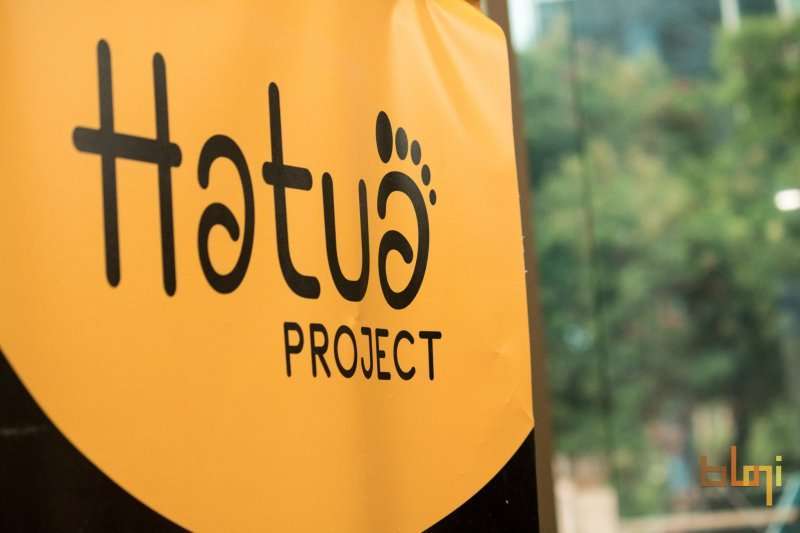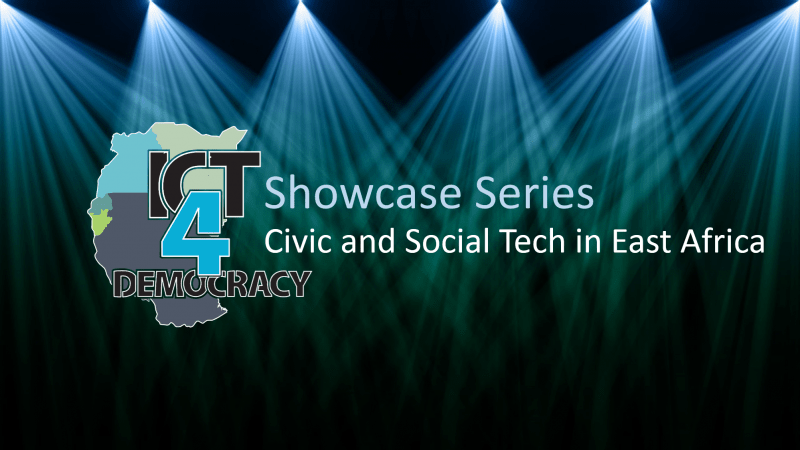By Ashnah Kalemera |
Sandra Kitenge, a student of Mbezi High School, is determined to bridge the gender gap in technology in Tanzania. Having benefited from the Apps and Girls programme that empowers girls with computer literacy and coding-for-change skills, she sought avenues through which she could contribute to amplifying grassroots voices as part of electoral processes in Tanzania. The solution: an idea for a mobile app known as Tujibu (Swahili for “answer us”) through which grassroots communities can interact with leaders on their manifestos so they can make informed election decisions.
Alongside her studies, Sandra has since 2015 conceptualised her idea and last May finalised the web interpretation for the app. Currently, she is working on the hosting for the app and hopes to have a prototype by September.
“The app will help leaders know the needs of their people and promote accountability in fulfilment of pledges,” she says.
Tujibu was among four technology tools presented at the first Civic and Social Tech in East Africa showcase hosted by CIPESA in partnership with Buni Innovation Hub in Dar es Salaam, Tanzania on June 16.
Another tool showcased at the event was KodiYangu, a website on tracking the utilisation of tax funds in Tanzania. Currently in prototype stage, the website is expected to enable citizens to give feedback on priority areas for budget allocations and also inform relevant advocacy and awareness raising initiatives. KodiYangu is being incubated by the Hatua Project, an initiative for catalysing citizen engagement and innovation.
The reason as to why social media can be a powerful tool to facilitate #CivicEngagement #GovernmentAccountability @cipesaug @SparkSahara pic.twitter.com/lVTDBXkhGQ
— BUNI (@bunihub) June 16, 2017
Also showcased was Changia, a mobile-based platform under development by the youth-led Tujenge software development company. The app, currently in testing phase, is aimed at community fundraising at local government level for health, water, and infrastructure challenges. Through the platform, duty bearers are able to fundraise for identified community concerns and citizens are also able to hold the leaders to account for funds collected.
Meanwhile, the web-based Platform for Youth and Policy Exchange (PYPE) will be aimed at promoting awareness and engagement among youths on policy issues. Using interactive online media and tools, PYPE will maintain a policy database on various sectors and conduct polls on specific youth policy issues.
“Youths can only effectively engage in governance if they are aware of the policies relevant to them and are able to follow up on implementation,” says Farhan Yusuf, a member of the PYPE developer team. An official from the Tanzania Policy Dialogue pledged to work with PYPE on policy analysis and advocacy following the Yusuf’s presentation at the showcase.
According to various developers, an ongoing challenge for social and civic tech innovation in Tanzania is the limited availability of information. Edwin Paul of KodiYangu says that, for the tax revenue and budget allocations, the latest figures they were working with were for the 2013/2014 financial year. “We don’t have access to the figures for the following years,” he adds. Nonetheless, developers hope that implementation of the recently passed Tanzania Access to Information Act, 2016 may help in making information more widely availability.
See this on the Right to Information in Tanzania: Insights on the Laws, Policies andPractices
Other challenges that Tanzanian developers face include high levels of illiteracy and low incentives for adoption of civic tech tools by duty bearers and citizens. Moreover, given ongoing cyber security challenges, participants at the tools showcase urged developers to make ensure their platforms have strong security provisions to safeguard against hackers, filter spam, and secure users’ information.
Panelists are ready.We're on the next phase of the forum #civicengagement #socialinclusion @cipesaug @ICT4DemEA @musakamata @BasilMalaki pic.twitter.com/zd0meoY6fy
— Sahara Sparks (@SparkSahara) June 16, 2017
A panel comprising of representatives from the United Nations Association of Tanzania, the Forum for Climate Change Tanzania, Open Society Initiative East Africa (OSIEA) Tanzania office, the Tanzania Bora Initiative and Jamii Forums also discussed the impact of civic tech on engagements between citizens and duty bearers, as well as on improved governance in Tanzania. The panellists noted that application of technology in their respective work had helped bridge the communication gap between citizens, duty bearers and civil society, especially in rural communities. Further, technology had enhanced access to information, citizens’ participation in decision-making processes, and government responsiveness to citizens’ concerns.
However, the panellists noted that awareness of civic duties remained low, supporting infrastructure such as electricity was a challenge, and there was limited research to inform the design and implementation of technology within their interventions. They urged developers to leverage mainstream and online media, as well as physical engagements, to complement their tools.
Finally, there was also a call for more support – funding and mentoring – for young innovators in civic tech and setting up of a “governance hub” to bring together tech and governance stakeholders to innovate and incubate ideas whilst avoiding duplication of efforts.
For her part, Sandra applauds the support she has received from mentors including the team at Apps and Girls, Buni and Niwezeshe Lab. She admits, however, that working on Tujibu whilst still in school is a challenge.
The June 16 tech showcase was the first in a series of civic and social tech in East Africa engagements organised by CIPESA as part of the ICT4Democracy in East Africa initiative. The next event is scheduled to take place in July 2017 at Outbox hub in Kampala, Uganda.
Ashnah from CIPESA telling us a bit about what the forum's objectives are. #accountability #socialinclusion #civicengagement @cipesaug pic.twitter.com/WIYo4nB2fV
— Sahara Sparks (@SparkSahara) June 16, 2017


